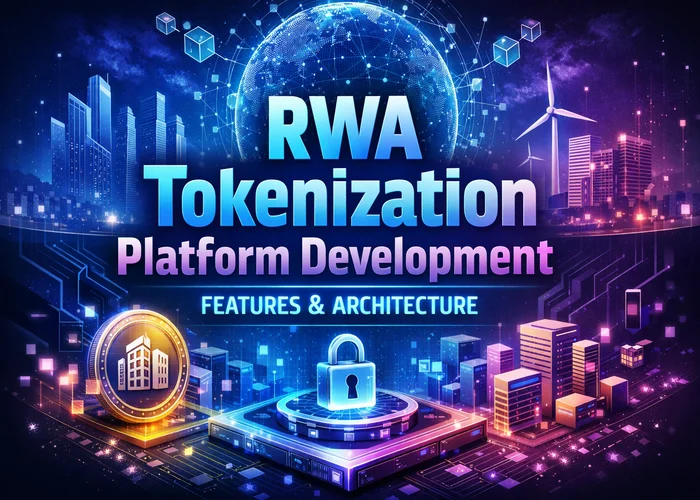AI in real estate industry is changing the property landscape and how properties are being acquired, sold and developed. The real estate industry experts and investors should understand the impact of AI in real estate and in the ever changing real estate market.
1. Automated Property Valuation and Pricing Models
It Works:
- Quicker, more accurate appraisals.
- Human bias reduced.
- Sellers, buyers, and lenders have more transparency.
2. Intelligent Property Search and Recommendation Engines
Many real estate services use AI in real estate search algorithms that learn from user interactions to increase recommendation accuracy. The technology provides highly tailored property choices that save customers time and effort by considering geographic preferences, pricing ranges, property attributes, commuting patterns, school districts, lifestyle indicators, and aesthetic preferences.
- NLP enables conversational search questions like “find me a family home near good schools with a large backyard”.
- Image recognition technology helps the customer with easy search of their property.
- Based on user preferences and market trends, predictive analytics suggests properties before they hit the market.
- Immersive property and neighborhood tours using VR
- Behavior analysis reveals user preferences through search and interaction patterns.
3. Predictive Analytics for Market Forecasting and Investment Strategy
4. Smart Property Management and Maintenance Optimization
- PCS predicts maintenance Automated tenant screening streamlines application processes and improves applicant quality assessment by evaluating equipment performance data to schedule repairs before failures.
- Energy-optimization algorithms cutting utility expenditures with smart HVAC, lighting, and system management
- Virtual assistants for tenant inquiries, maintenance, and admin
- Instant financial analytics on property performance, expense management, and revenue optimization.
5. Enhanced Due Diligence and Risk Assessment Automation
AI in real estate due diligence speeds up transaction processing by 50-70%, improves risk identification accuracy by 30-40%, reduces legal and compliance risks through comprehensive analysis, and improves investment decision-making through data-driven insights. Real estate firms report much lower legal and due diligence costs while enhancing deal quality and eliminating post-transaction surprises.
- Automating contract, lease, and legal document examination and extraction of critical information
- Legal compliance check reviewing properties and transactions for zoning and regulatory compliance
- Financial modeling and analysis analysing investment returns, cash flows, and risk
- Environment assessment for contaminants, risks, and regulatory compliance
- Verifying title and finding ownership disputes or encumbrances.
6. AI-Powered Real Estate Marketing and Lead Generation
7. Commercial Real Estate Analytics and Investment Optimization
- Financial stability, lease compliance, and development potential of tenants and creditworthiness
- Comparing and benchmarking similar properties, transactions, and market performance measures
- Portfolio optimization and diversification balance risk and return across property kinds and markets.
- Space efficiency analysis optimizing layout, tenant mix, and facility usage for optimal profit.
- Analysis of the market and competition monitoring industry developments, competitors, and investment prospects.
8. AI for Construction and Property Development Planning
Apps for development
- Site assessment and selection assessing development potential, limits, market demand, and regulations
- Cost-effective buildings with maximum space utilization and market appeal through design optimization and efficiency
- Regulatory compliance and permitting guaranteeing zoning, building, and environmental compliance
- Project coordination optimizing construction, resource allocation, and timelines
- Providing accurate project cost forecasts and budget monitoring throughout development
9. Intelligent Customer Service and Virtual Assistance
- Available 24/7 answering concerns instantly regardless of time zones or business hours
- Multilingual assistance for various clients in their preferred languages
- Automating viewings, consultations, and meetings
- Client document assistance and direction through paperwork, contracts, and transactions
- Customized advice tailoring property suggestions and market information to client profiles.
10. Fraud Detection and Security Enhancement
- Authentication and identification verifying client and transaction validity many ways
- Verifying and analyzing documents identifying counterfeit, altered, or questionable legal documents
- Tracking and analyzing transactions detecting fraudulent financial transactions
- Transaction and counterparty risk evaluation and management using detailed data analysis
- Monitoring regulatory compliance and reporting suspicious activity.
Conclusion
So finally, AI has transformed the property management, analysing, marketing, development and much. In this blog, we discussed the 10 real-world use examples. Beyond automation, AI in real estate provides smarter analytics, better decision-making, better client experiences, and operational efficiency that boost business growth and competitiveness.











